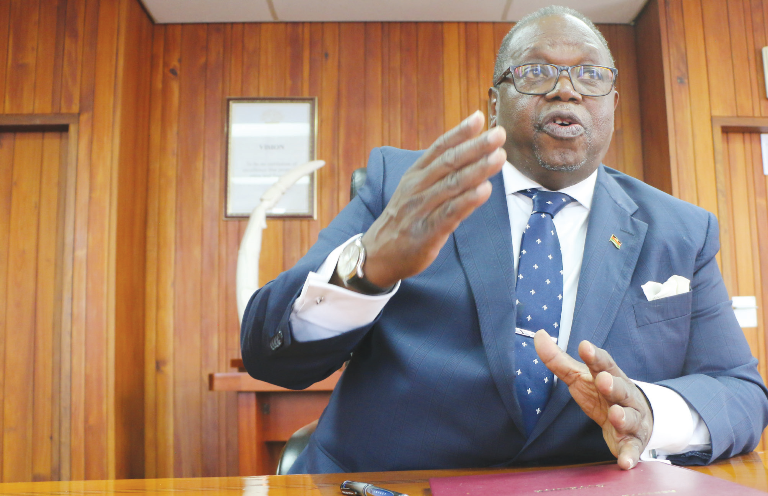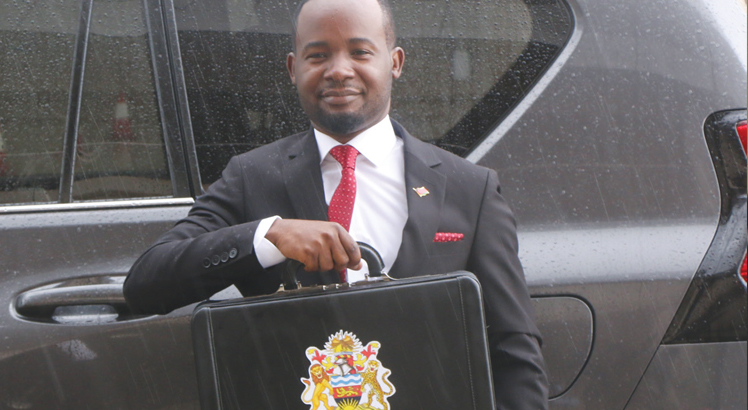Govt in quest for IMF nod
Malawi’s future depends on it, literally.
For without it, a fresh economic programme with the International Monetary Fund (IMF) whose official negotiations President Lazarus Chakwera’s administration starts in 10 days, Malawians can forget about their cost of living easing any time soon.

Even Malawi2063—the blue-print expected to take the country into upper-middle income status by the year 2063—could just be another imaginative graphic on paper.
And the fund agrees.
In its December 2021 Country Report for Malawi, the IMF were blunt: the fund-supported Extended Credit Facility (ECF) is the only viable path for Lilongwe to get donor financing for investments in physical and human capital pivotal to vision goals.
“Given the protracted balance of payments problem, Malawi is facing challenges in implementing economic programmes envisaged in Malawi Vision 2063 without support from the IMF and the international community at large,” says the fund, referring to its catalytic role in Western capitals’ aid taps.
Malawian authorities too agree.
In an exclusive interview on Wednesday, Reserve Bank of Malawi (RBM) Governor Wilson Banda signaled that the ECF may as well be the country’s holy-grail.

“I think we need a break, we need to make sure that we have the programme with the fund and we start engaging with donors. We need to show our visibility out there and start addressing issues that affect the average man and woman in Malawi,” he said.
Banda said a programme with the IMF gives a stump of approval that the country has the right policy mix macroeconomic-wise and a sound fiscal framework to instill confidence, otherwise, donors would “definitely” not give aid; leaving Malawi with a huge budget gap that can only be filled largely with unsustainable borrowing.
“In the absence of donor support, government ends up having to foot that bill [budget deficit] and that can be very taxing. This is why you find that in the past three to four years, there has been a lot of borrowing by government from the domestic market that has led to the crowding out of the private sector.
“We want the private sector to take centre-stage [so that] the gap in the government budget will have to be filled by donors and they can only do that with a programme with the IMF, so we think the programme with the IMF is necessary,” he said.
One analyst from the capital market with deep ties to the economic policy making crowd said he is positive Malawi will secure the ECF, but warned that it will take time before donors resume budgetary support.
He cited recent statements from the European Union (EU) Malawi office, which said it is not convinced government has done enough to fight corruption to deserve its aid.
“The chances are good that the programme will be in place. [But] I think it is unlikely budget support will come anytime soon. See the recent statement by the EU envoy. They are still unhappy with efforts to stamp out corruption, plus leaking of public funds,” said the market analyst.
The absence of a durable programme with the fund and the withdrawal of budget support from Malawi by donors angry at the discovery of Cashgate in 2013 has crippled Malawi’s public finances.
Following Cashgate-triggered donor withdrawals, mostly from 2013, Malawi’s external budget support and grants that averaged 5.8 percent of Gross Domestic Product (GDP) during 2005-13 have since plummeted to 1.8 percent of GDP, according to figures from the fund.
Government has financed the gaps left by donors through costly domestic borrowing and from regional development banks on a non-concessional basis; hence, worsening the public debt stock to 56 percent of GDP.
While this level of indebtedness is within the Sadc threshold of 60 percent, the biggest challenge for Malawi is its capacity to repay as annual interests payments are nearly unsustainable now, the governor said.
In the 2022-23 National Budget alone, interest payments stand at K524 billion, representing 4.6 percent of GDP or around 18 percent of total expenditure.
The allocation to interest payments is more than the K462 billion given to education, a sector identified in MW2063 as an enabler, but which has 4.1 percent of GDP and 16.3 percent of total spending.
Also outshined is health which, at K283.57 billion (10 percent of total budget), is just above half of what interest payments have secured.
This largely explains why Malawi desperately needs the ECF to lower debt levels that may in turn result in smaller annual budget provisions for servicing debts.
Reduced interest payment expenses will create the fiscal space that allows government to spend more on education, health, agriculture and other sectors that are critical to investing in public infrastructure, lessening poverty and achieving the MW2063 aspirations.
Should Chakwera and his team pull off the ECF and consistently remain on its track, Malawi may have a chance to do just that.
Governor Banda confirmed that government and IMF have concluded all “our technical discussions and that a formal mission will be in Malawi from May 23 this year to finalise talks”.
He said the fund’s team will be in Malawi for two weeks to June 3 during which time the two parties are expected to seal technical and policy discussions.
Asked if he was optimistic that Malawi will walk away with a deal he himself admits is critical to the country’s survival, Banda was confident.
“Of course I am optimistic. I mean I haven’t come this far and I haven’t worked so hard [for nothing], so we can only be optimistic. I think we have done the right things. It has been hard, it has been painful for this economy,” the governor said.
Finance and Economic Affairs Minister Sosten Gwengwe on Friday said he could not respond to questions on how the fiscus has prepared for the negotiations.
But securing the programme will not be easy both in terms of the fiscal and monetary policy context.
On the fiscal side, proving to the IMF that government is ready to implement tough policy adjustments to address macroeconomic imbalances and restore debt sustainability will be a hard sale.
However, Gwengwe, when he announced a reciprocally responsive fiscal adjustment plan in his maiden budget earlier this year, signalled his determination to put his fiscal house in order.
The question is whether his fiscal consolidation efforts will be strong enough at a time of fiscal pressures and dwindling fiscal space to show the mission he will host.
On the monetary side, the central bank needs to demonstrate willingness to tighten monetary policy should inflationary pressures warrant it; show commitment to rebuilding external buffers and project a flexible exchange rate posture.
The fund also demanded in December that government should deliver on its commitment to conduct a special audit of foreign exchange reserves and improve the frequency and quality of data reporting.
The central bank is already tightening monetary policy, having raised the policy rate recently from 12 percent to 14 percent, said Banda.
During the Wednesday sit-down in Lilongwe, Banda affirmed that the monetary policy will be “very, very” tight going forward.
“For as long as inflation is a problem, I would not rule that [more policy rate hikes] out because it would not make sense for us to keep interest rates or the policy rate low when inflation is actually undermining everything about this economy.
“So, inflation will really have to be dealt with and you cannot expect to have any growth in a sustainable manner in an environment that is undermined by inflation. It is actually a mandate of this institution as a central bank to make sure that prices are stable,” he said.
On the special audit of foreign exchange reserves—which the IMF said last December are a pre-requisite for a new programme—Banda said the central bank is on track.
He said the bank engaged Ernest and Young of London to carry out the Foreign Currency Audit on the Reserve Bank following the discovery of misreporting under the Peter Mutharika administration.
“The auditors have completed their work and they are now writing the report, so certainly the first draft should be ready by the end of this month and we hope that we can share that with other interested parties, including the IMF,” said Banda.
On the political side, at issue might be government’s commitment to good governance, including, and maybe especially, taking steps to curb corruption and mismanagement of public resources.





